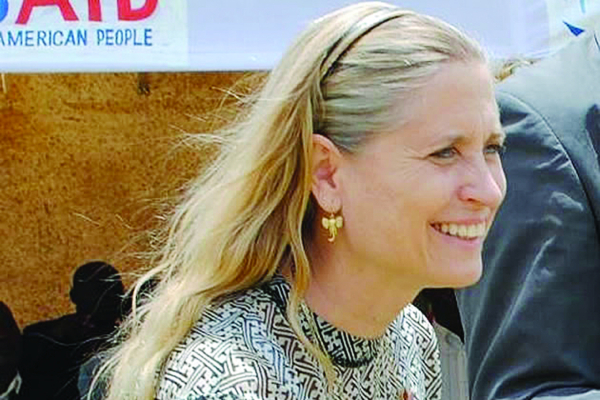
SAKUBVA District Hospital is located in a high-density suburb in Sakubva, Mutare. This public hospital, surrounded by large mountains, has become a safe haven for mothers and babies from remote areas who would have faced complications at birth.
BY FLORENCE RONDOZAI/ DOREEN HOVE
The hospital has one of the 29 Kangaroo Mother Care units for premature babies in Manicaland province that the USAid-supported Maternal and Child Health Integrated Programme (MCHIP) made functional through extensive training of health care workers, refurbishments, and supply of new equipment.
These units have been instrumental in saving the lives of preterm babies born in and around Manicaland province.
As you enter the Kangaroo Mother Care unit in the hospital, the first thing you feel is the change in temperature. The heaters are on because pre-term babies need heat to stay alive.
Linda is one of five mothers in the ward with their babies. She carries her daughter, Trinity, neatly strapped to her chest to ensure that the baby is kept warm through skin-to-skin contact.
Like the other mothers in the unit, Linda carries her baby that way the whole day.
“When I came in with Trinity, she was weighing 800 grammes, and I was afraid that my baby was going to die. We were referred here from a small clinic in a remote part of Mutare. When I carry Trinity on my chest, the heat from my body and my heartbeat helps to keep her alive and content. Each time Trinity hears the sound of my heartbeat, she remembers to breathe.”
- Chamisa under fire over US$120K donation
- Mavhunga puts DeMbare into Chibuku quarterfinals
- Pension funds bet on Cabora Bassa oilfields
- Councils defy govt fire tender directive
Keep Reading
USAid/MCHIP trained over 1 300 health care workers in Manicaland province, imparting skills and knowledge necessary for both routine and emergency obstetric cases, newborn care, and children’s illnesses.
This has improved standards of care and health outcomes in the province.
“Prior to our work, one of the major causes of death among women was haemorrhaging — or excessive bleeding — during child birth, but now deaths related to haemorrhaging have decreased substantially,” said Rose Kambarami, the chief of party for MCHIP.
When USAid launched its maternal and child health programme in Zimbabwe in 2010, the country’s maternal mortality rate was among the highest in the world due to a series of economic and public health crises.
USAid focused on improving care in 36 high-volume public hospitals that cater for up to 80% of those seeking care in Manicaland province, which had the most illnesses and deaths among mothers and babies.
Today this important work has improved the health of over 230 000 pregnant mothers and 1,5 million sick babies and children through the high quality of care they received in USAid-supported hospitals and clinics in this province.
More lives will be saved as the knowledge and skills continue to be transferred from one health care worker to another and one facility to another.
Moyounotsva Ndhlovu is a village health worker in Chipinge district, an area with both high rainfall and temperatures.
Malaria is one of the leading causes of death among women and children in this area.
“I live in a village called Rujeko, which has about 435 households. The nearest clinic is 7,5km away,” Ndhlovu said.
Because the clinic is far away, many villagers cannot access it in time to get the health care they need.
USAid/MCHIP-trained Ndhlovu and
3 000 other village health workers to identify and treat malaria cases early and to provide regular antenatal and postnatal care for women and their babies.
Most of these village health workers had no prior medical skills or experience, but have committed themselves and their time to saving lives in their villages.
“The number of malaria cases I see varies with the season, ranging from five to 15 cases per day,” Ndhlovu said.
She recalled one particular case she attended to in November 2017.
“A mother brought her 19-month-old baby boy to my home at 6:30pm. The baby’s temperature was extremely high. He was unable to talk, refused to eat, and was vomiting,” Ndhlovu said.
She quickly recognised these danger signs and tested the child for malaria, getting a positive result.
“Since the child had severe malaria, I immediately referred them to the hospital. But first, I administered 100 milligrams of rectal artesunate to help manage the condition,” she said.
The health worker visited the hospital the next day and found that the child’s condition had improved.
His temperature had gone down from 40.3 to 37.5 degrees Celsius.
Ndhlovu was happy that the knowledge and skills she got from USAid/MCHIP had helped save a life.
The 3 000 village health workers MCHIP trained in malaria case management resulted in timely detection of over 4 000 malaria cases in Manicaland province.
This work has contributed to a substantial reduction in maternal, newborn, and child deaths.
Between 2014 and 2017, there has been a 43% reduction in maternal deaths, a 36% reduction in newborn deaths, and a 25% reduction in deaths in children under the age of five years in health facilities supported by USAid/MCHIP.
USAid/Zimbabwe Mission director Stephanie Funk is excited about the achievements and the impact the project has had on the lives of Zimbabweans.
“The United States is proud to increase access to high quality care for Zimbabwean families. Over the last four years, this successful programme has improved the health of 230 000 mothers and 1,5 million babies and children in Manicaland. And the work continues. A new USAid maternal and child health and reproductive health project is expected this year,” she said.











